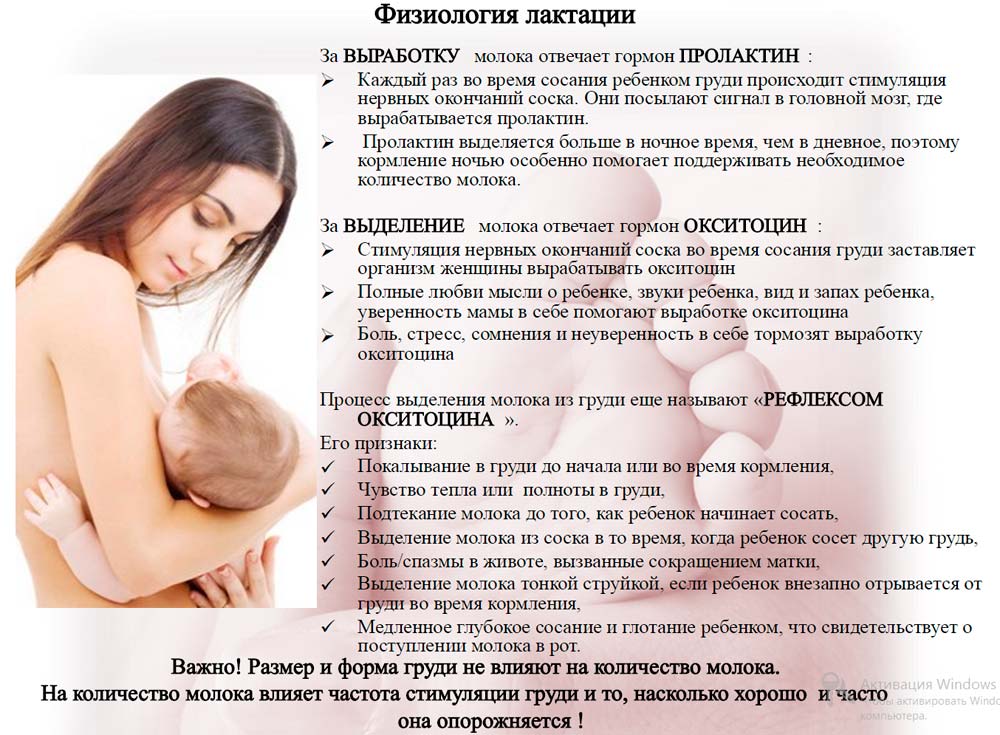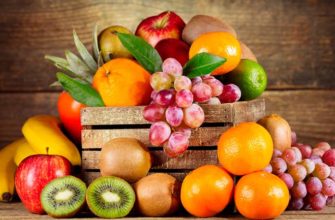Lactation is the formation of milk in the breast of a nursing mother. its accumulation and elimination. Milk production begins already during pregnancy. This is evidenced by the allocation of colostrum, which begins in the second trimester of pregnancy. Each woman has an individual lactation period, for some mothers it can last for several years, while for others it ends one month after giving birth.

What contributes to the production of breast milk?
Prolactin and oxytocin are the main hormones that are responsible for the production of breast milk. At a time when prolactin performs its functions to create milk, oxytocin plays a role in the form of an assistant to exit it.
In order for milk to be in sufficient quantity, and it was nutritious for the baby, the young mother should lead a healthy lifestyle, eat a balanced diet and not overwork.
Remember the following rule: the more often the baby will suckle, the more milk will be produced.
Lactation stages
- Certain substances found in the blood begin to accumulate in the mammary gland.
- In the future, they take part in the synthesis of the constituent parts of breast milk, which flows in the secretory cells of the mammary gland.
- The synthesized products are formed and accumulate in the cytoplasm of secretory cells.
- And at the final stage, breast milk enters the alveoli of the mammary gland.
All stages of lactation begin even during pregnancy, with the exception of the final stage. The allocation of breast milk occurs after childbirth. All the same hormones released during pregnancy have an effect on lactation processes.
Lactation process

The process of lactation in all women proceeds differently. As a rule, a small amount of colostrum is secreted after birth. But the further development of breast milk depends on the amount of hormones, the emotional state of the woman in labor, her nutrition, the course of childbirth and other issues that affect lactation.
In some cases, a sharp rush of milk occurs on the second day after the birth of the baby. But it is possible that the growth will proceed gradually.
Milk can appear much later, only by 5-7 days. Delayed lactation often occurs in primiparous women. What makes them think of ways to increase lactation. But, as you know, the main responsibility for this process lies with hormones.
It is very important to properly feed the newborn. This helps to produce breast milk in the required amount. If you stop feeding the baby, or apply it to the breast very rarely, milk production will decline. But it is not worth overfeeding a child. The remaining milk can be decanted.
In the first month of the baby’s life, not only the quantity changes, but also milk composition. The first two weeks of lactation, breast milk is considered preparatory, and only from 10-13 days can it be called mature.
Mom’s milk is the most important product for the baby, containing all the nutrients, trace elements and vitamins he needs. Even the highest quality infant formula is inferior to breast milk. Lactation is a natural process necessary for the harmonious development of the baby.
Products affecting lactation
There are several methods to normalize the production of breast milk: naturally and through special medications. It is recommended to use medicines only when it is not possible to achieve certain results in the usual ways (proper nutrition, healthy lifestyle), and only on the recommendation of a specialist.
It is important that the nursing mother drink plenty of fluids, at least 2 liters per day. It is necessary to balance nutrition and eliminate harmful foods. In the diet of the nurse should be:
- lean meats: chicken, veal, rabbit;
- fish: hake, pike perch, carp, pollock, carp;
- protein foods: milk, eggs;
- nuts
- dairy products: yogurt, kefir, ryazhenka, cottage cheese, yogurt;
- cheese.
It is required to exclude from the diet:
- oily;
- roast;
- spice;
- preservatives, colorants and additives;
- carbonated drinks;
- vegetables, fruits and berries that cause allergic reactions: tomato, citrus fruits, strawberries, black currants, raspberries.
READ ALSO: what can and should not be eaten by a nursing mother
Proper breastfeeding
From birth, you need to learn how to breastfeed (read a big article how to do it) With a shortage of milk, infants should be fed more often than usual.
The correct feeding process is as follows: while breastfeeding, the baby should turn the lower lip outward, and the upper one, firmly press the nipple to the lower one. The child should completely cover the entire nipple. Such massage of the nipple during infancy stimulates lactation. Incorrect attachment may cause cracksthat will cause discomfort to mom. It will take time to heal such cracks, in which you have to temporarily not breast-feed a child, which can lead to a loss of milk.
Healthy sleep, relaxation and fresh air will help the nurse receive positive emotions, and this will have an effect on lactation.
A nursing mother should devote more time to her baby: hug him, kiss him and talk to him. All these actions not only have a good effect on lactation, but also enable the baby to feel relaxed and protected.
Ways to increase lactation
Taking hot baths and breast massage also contributes to increased lactation. When taking a shower, a stream of water should be directed to the chest, while doing circular movements with the hand. Bathing is not only useful, but also enjoyable.
There is also a folk method - hot tea with condensed milk and halva. These are miraculous means by which you can feel a rush of milk in your chest in a matter of minutes.
If all these methods do not give the desired effect, then you should contact a specialist who, after certain examinations, will recommend taking special medications to increase lactation.
Thanks to active propaganda and information, most modern mothers themselves want to breastfeed, because they realize that it is important and useful for the baby. Sometimes the circumstances are such that, despite the great desire to feed, lactation fades and it needs to be restored. How to restore lactation - 10 main recommendations -https://kid.htgetrid.com/en/kormlenie-grudyu/kak-vosstanovit-laktatsiyu-10-glavnyih-rekomendatsiy.html
Sooner or later, the time comes when it is necessary to stop breastfeeding, and somehow you need to stop milk lactation. And here certain difficulties arise. It is not difficult to wean a baby from the breast (see how to do it simply).But how to make the milk go? Unpleasant “chewing” sensations in swollen breasts, milk-wet clothes — which women are not familiar with these sensations? Folk ways to stop lactation and a list of drugs to quickly stop lactation -https://kid.htgetrid.com/en/kormlenie-grudyu/kak-prekratit-laktatsiyu.html
What drugs increase lactation?
Today, there are many tools that help increase lactation. The most popular are teas, they include vitamins, herbs and minerals. For example, grandmother’s basket, lactogon, lactavit (here is a list of the most popular teas for lactation).
Many mothers independently prepare different mixtures, which should increase the amount of breast milk. This is not recommended. Only after consultation with the attending physician and certain examinations can you prepare and take various decoctions of herbs.
Herbs such as lemon balm, nettle, dill, fennel, popular among nursing mothers, are part of teas for lactation. They can be used individually. It is recommended to take all the infusions and decoctions of herbs in a warm form, because a warm drink increases milk production.
READ ALSO: How to increase lactation of breast milk at home (folk remedies and pills)
How does lactation work?
How is breast milk produced? The physiology of lactation. What hormones work in milk production? Prolactin, oxytocin, progesterone and adrenaline - how can we affect the functioning of the main hormones of lactation?








